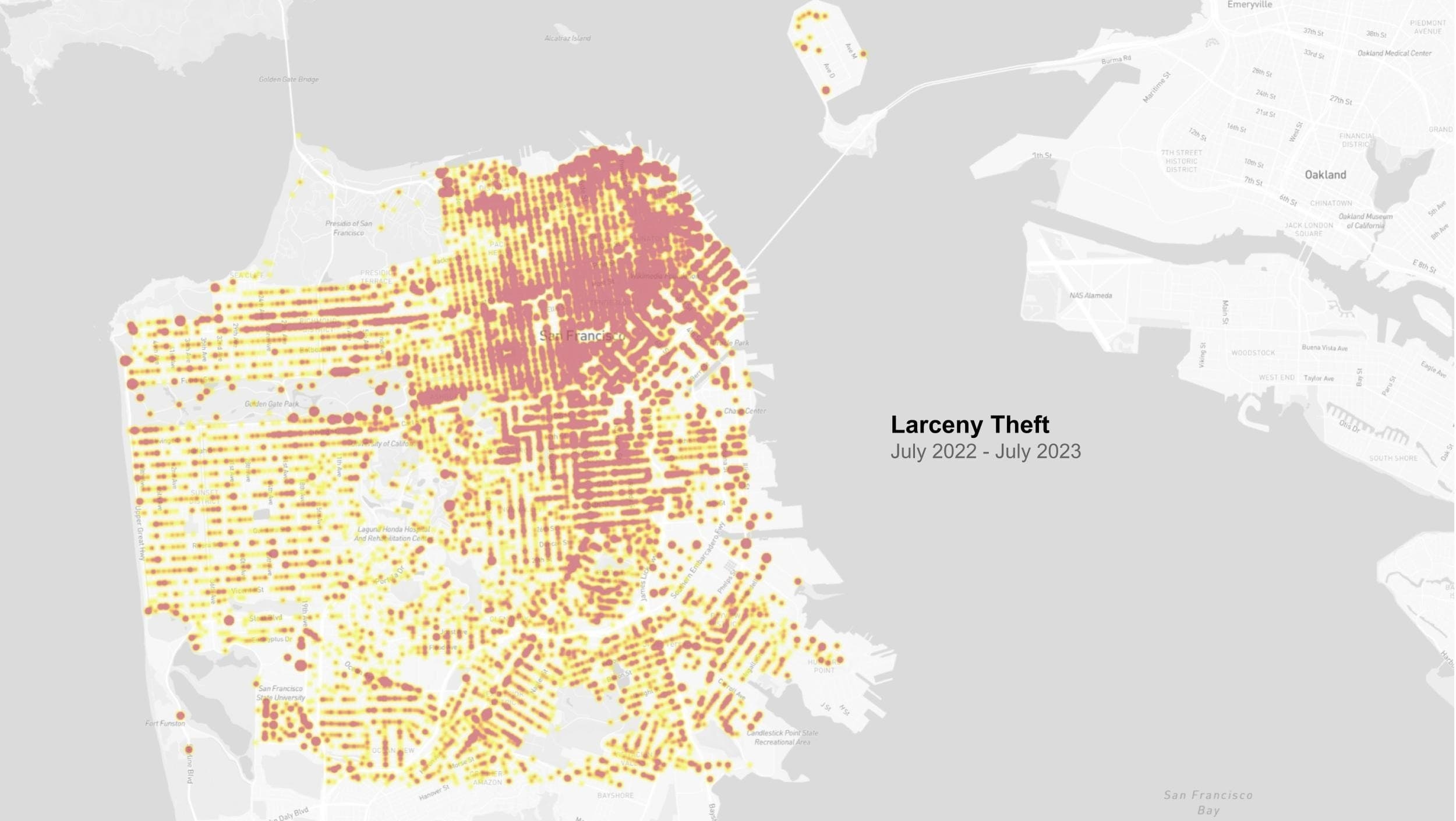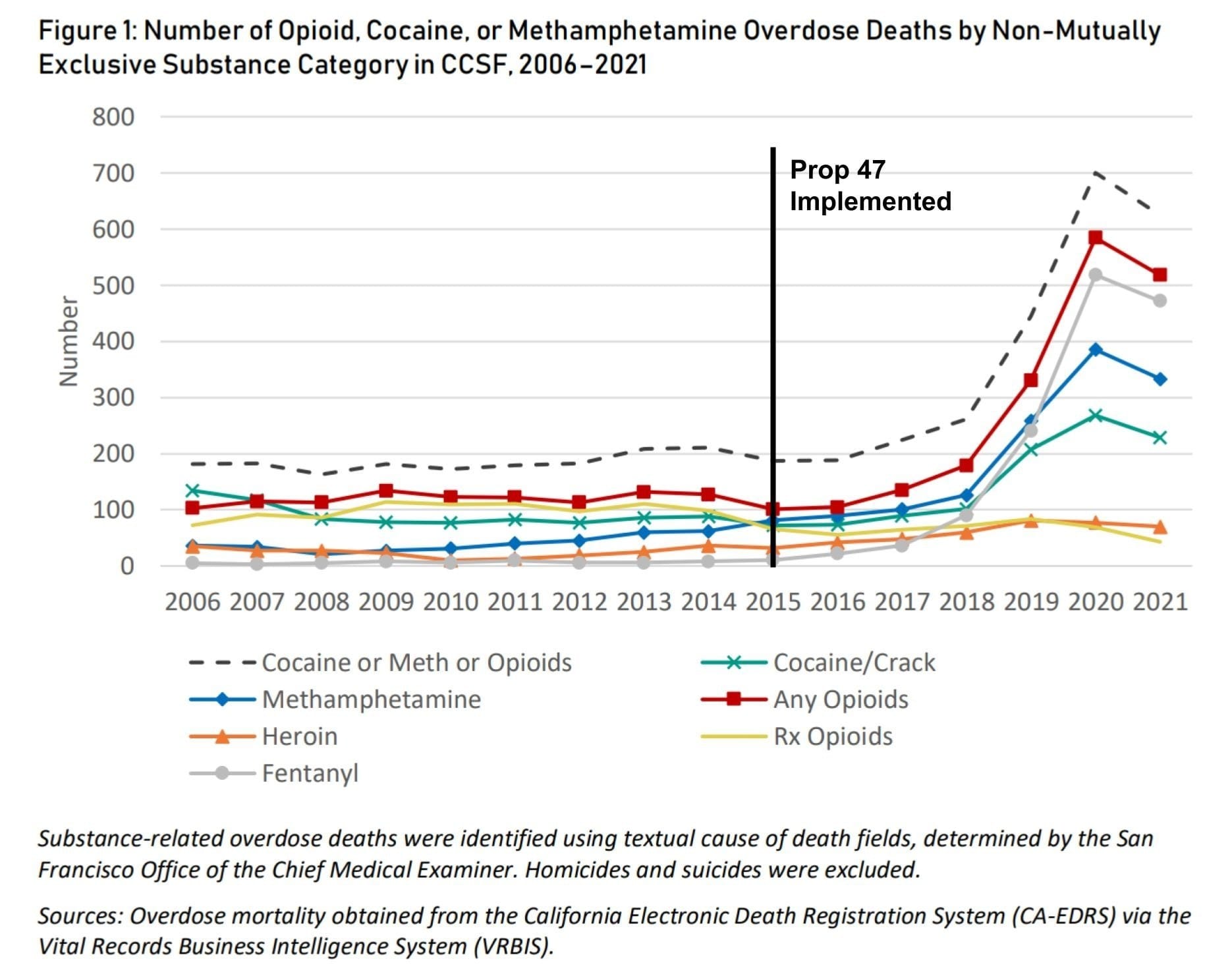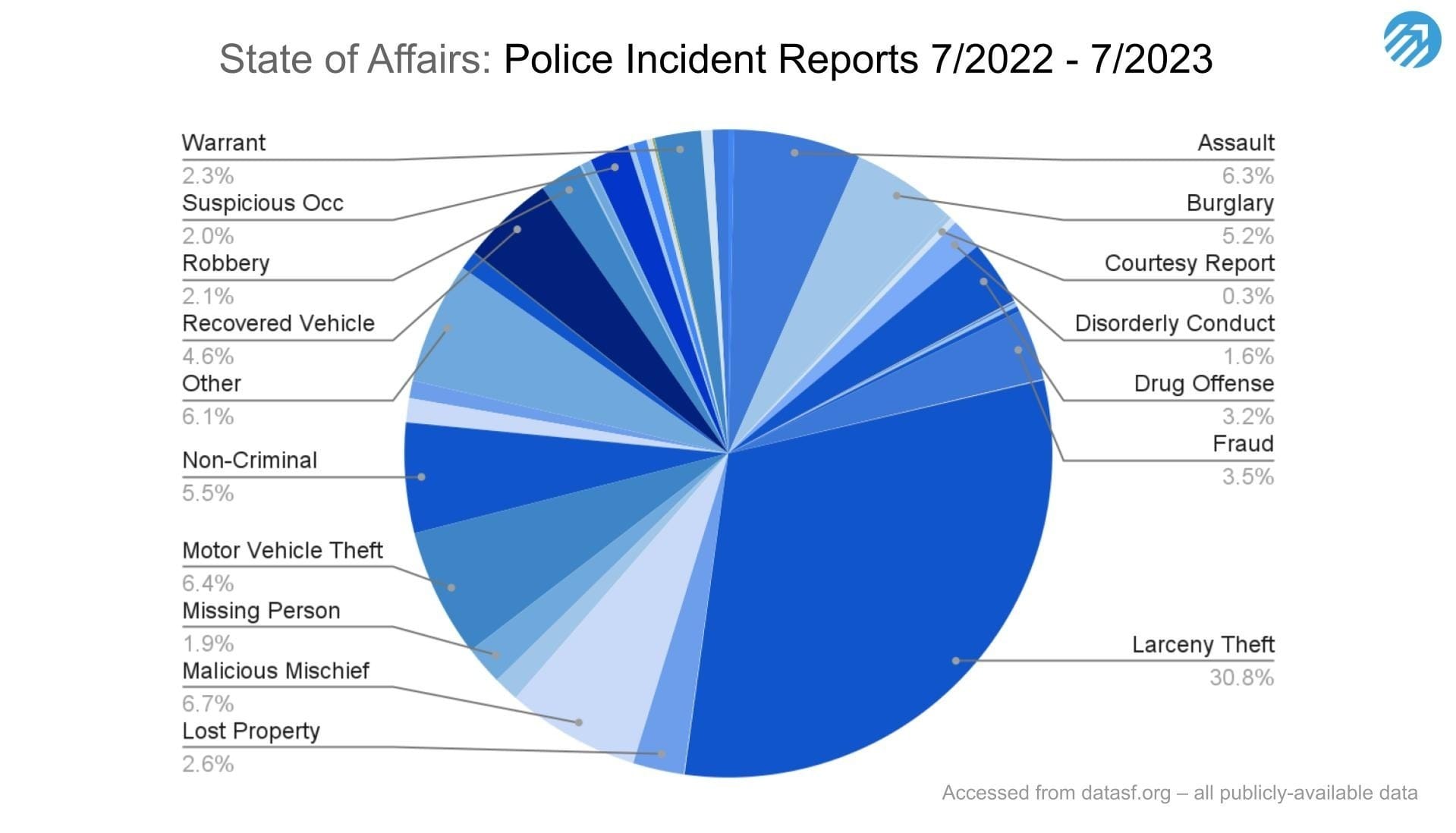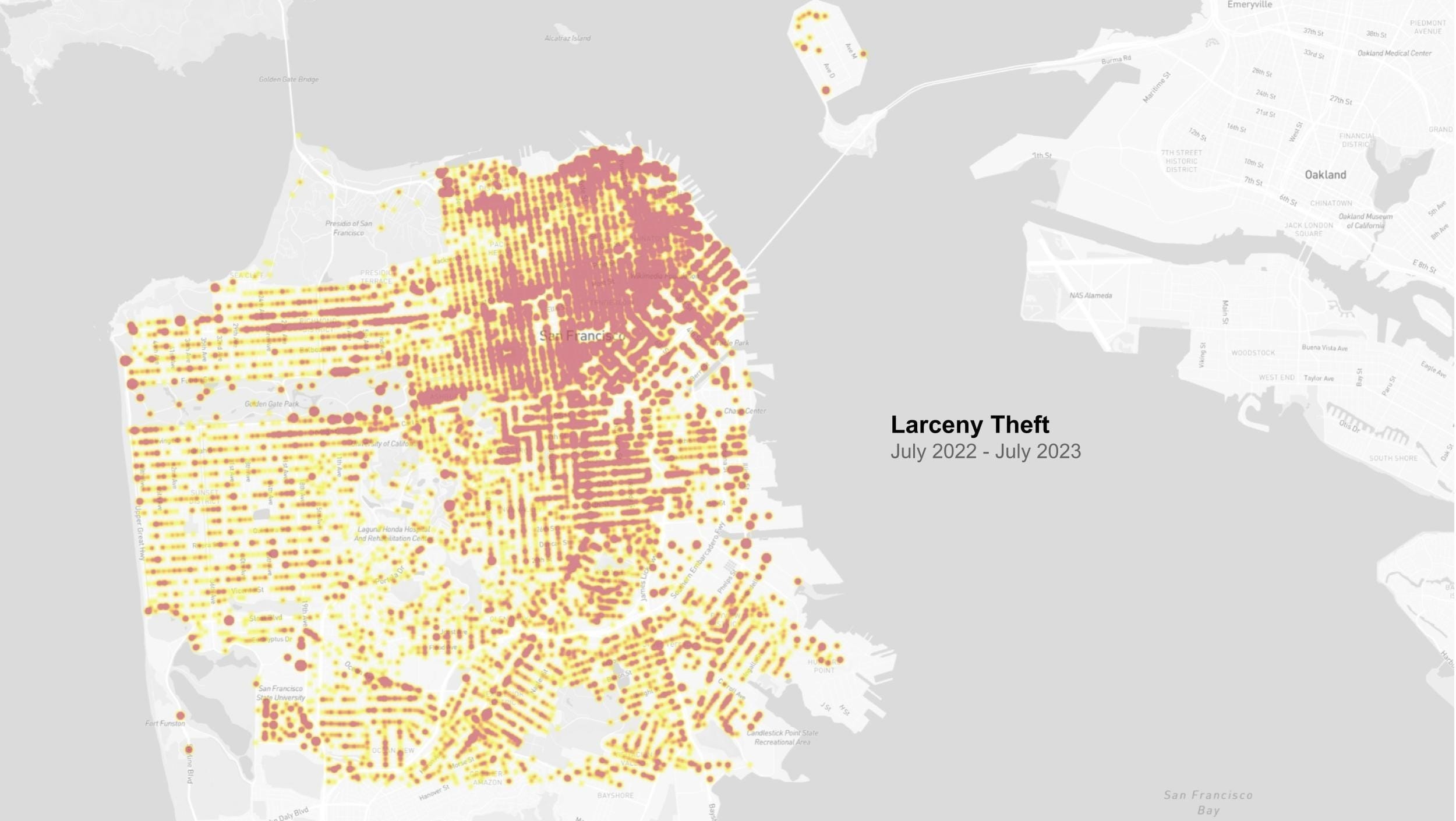
In November 2014, California voters approved Proposition 47, The Safe Neighborhoods and Schools Act. It sounded good—the description brought to mind images of preventative crime measures and a more equitable vision for public safety—and big names called for its passage, from Attorney General Kamala Harris to San Francisco District Attorney George Gascon.
The bill itself was pitched in two ways. First, it would recategorize a series of "nonviolent" offenses from felonies to misdemeanors if the dollar value involved was below $950. Second, it would take the savings accrued from not incarcerating people and reinvest that money into school programs, trauma counseling, and substance-abuse initiatives. It seemed like a great vision, and so many of us voted for it.
Specifically, proposition 47 reclassified the following offenses from felonies to misdemeanors if the dollar value was below $950: shoplifting, grand theft, receiving stolen property, forgery, fraud, writing a bad check, and personal use of most illegal drugs.
A misdemeanor is far less serious than a felony. Across the U.S, 70% of defendants convicted of a felony were sentenced to incarceration. Moreover, a felony conviction significantly hampers your career prospects post-incarceration—a study by the University of Chicago found applicants with criminal records were called back less than 60% of the time compared with their non-criminal record counterparts. A misdemeanor often results in less punitive measures such as probation, fines, or a lighter jail sentence (not to exceed one year).
But the marketing of this bill obscured the reality of its impacts.
Outcomes
There are three practical outcomes following Prop 47 for San Francisco.
- Overdose deaths skyrocketed after Prop 47's passage
- Shoplifting became endemic after Prop 47
- Serial shoplifting is no longer a felony after Prop 47
1. Overdose deaths skyrocketed after Prop 47's passage
In 2021, 640 people died of fentanyl overdoses in San Francisco alone, while only 3 people were convicted for dealing fentanyl (not using it). The unintended consequence of decriminalizing the possession of illegal drugs is that Prop 47 removed the policy infrastructure to require mandatory substance-abuse treatment.
Formerly, if someone was using fentanyl in public, they would be picked up by the police and diverted to an Adult Drug Court which would not pursue incarceration, but would instead offer substance abuse treatment, require regular drug testing, and provide other social services. In decriminalizing most drug possession, Prop 47 removed the enforcement mechanism for sobriety.
To address systemic injustices, it was important to reform state laws on drug enforcement, particularly for marijuana possession offenses. Prop 47 did this by decriminalizing the possession of most drugs. But in doing so, it threw the baby out with the bathwater by providing no alternatives for enforcing substance-abuse treatment. Few would advocate for once again criminalizing all drugs; but whether intentionally or not, Prop 47 got rid of all our enforcement mechanisms for helping those with substance-abuse disorders. After Prop 47, there are almost no ways to mandate drug treatment, and drug treatment now has to be voluntary.
San Francisco's overdose deaths skyrocketed following the passage of Prop 47, and though you cannot directly attribute it to any single cause, the surge in overdose deaths in the years after the implementation of Prop 47 is clear.
2. Shoplifting became endemic after Prop 47
Prop 47 modified California Penal Code 459.5, which originally permitted the felony treatment of shoplifting, and in this capacity afforded police officers the legal ability to arrest a shoplifter on the grounds of burglary.
Before Prop 47, police officers could perform arrests for shoplifting, but Prop 47 removed that authority, making it much easier to shoplift without any consequences. With the passage of Prop 47, police officers could no longer treat shoplifting as a burglary (as long as the dollar value of what was stolen remained below $950).
The practical impact of all this? All "arrests" for shoplifting had to now be carried out through a "citizen's arrest" which is a legal process in which a non-law enforcement person had to 1) witness the event and 2) show up in court to prosecute the event (or at least testify that the person in question committed the shoplifting). After Prop 47, police officers were not permitted to arrest on the grounds of shoplifting.
In San Francisco, police cannot arrest anyone for shoplifting under a felony charge if the goods stolen are under $950. Instead, SFPD is often held to its "citation release" policy, meaning that most shoplifters are just given a fine of no more than $1,000 and let go. Fining someone $1,000 for stealing $950 doesn't sound like much of a punishment, and with how infrequently this fine is doled out, we can see how profitable shoplifting truly is.
To put this another way, Prop 47 put the burden of arrest on the person who saw the offense happen, rather than the law enforcement agency. So to seek any type of judicial procedure for the person who committed the offense, the person present for the crime—who in many cases is the store security guard (we have over 8,000 in SF alone, almost 4x the number of cops)—would have to: 1) call the police, 2) detain the offender until the police arrive, 3) once the police arrive, sign for personal responsibility that you saw the person commit the crime you claimed they committed, 4) show up in court when the case is tried, 5) followup as needed for the prosecution to occur.
But as you can imagine, the usual response is just inaction. Who would risk their life detaining a criminal who might be armed? Who wants to show up in court? Who wants to get pulled into the complex legal process of prosecution? And why would a security guard feel the incentive to do so when they have little skin in the game?
3. Serial shoplifting is no longer a felony after Prop 47
Prop 47 eliminated the felony treatment of serial shoplifters, and the ability to prosecute offenders based on previous convictions.
After Prop 47, you could steal tens of thousands of dollars, and just as long as each of those shoplifting offenses were less than $950 you will be charged with a misdemeanor. There are no hard and fast numbers on how many repeat offenders exist in San Francisco, but a 2021 study published by the California Policy Lab found that half of the 9,000 people charged with crimes and released from jail before trial from 2016-2019 were accused of committing a new crime while they were free. That's a remarkable statistic. If Prop 47 were intended to reduce recidivism, rehabilitate criminals, and promote restorative justice, it has failed.
The San Francisco Police Department reports that in 2018 there were 238 repeat offenders and just 20% of them were rearrested. In 2019, that number was 219 and 29% were rearrested. The data gets murky following the Covid-19 lockdowns, and recent data on repeat offenders has yet to be published.
Hindsight
In hindsight, the passage of Proposition 47, The Safe Neighborhoods and Schools Act, in November 2014 offers a sobering lesson in the complexities of criminal justice reform. While its proponents envisioned a transformative shift towards equitable public safety, the practical outcomes for San Francisco have proven detrimental. The reclassification of "nonviolent" offenses as misdemeanors below a $950 threshold brought many unintended consequences. The grand vision of reallocating savings to education, counseling, and substance-abuse initiatives was overshadowed by the realities of implementation.
The aftermath of Prop 47 revealed a surge in overdose deaths due to a lack of mandatory substance-abuse treatment, a surge of shoplifting brought about by diminished consequences, and a failure to address recidivism among repeat offenders. We must return to the drawing board and consider more effective ways to bring back a safe, clean, and vibrant San Francisco.
Generate a Personalized Email to the Board of Supervisors
To:
Sign up for the GrowSF Report
Our weekly roundup of news & Insights


